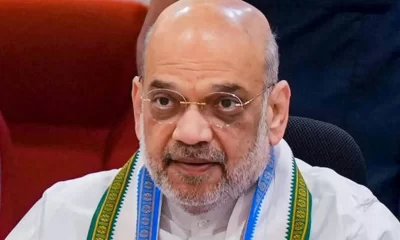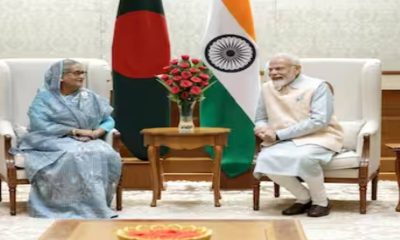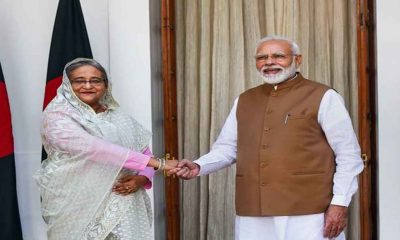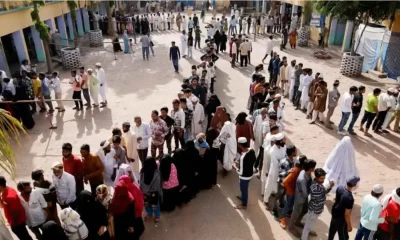Latest world news
Rohingya exodus: Myanmar signs repatriation pact with Bangladesh
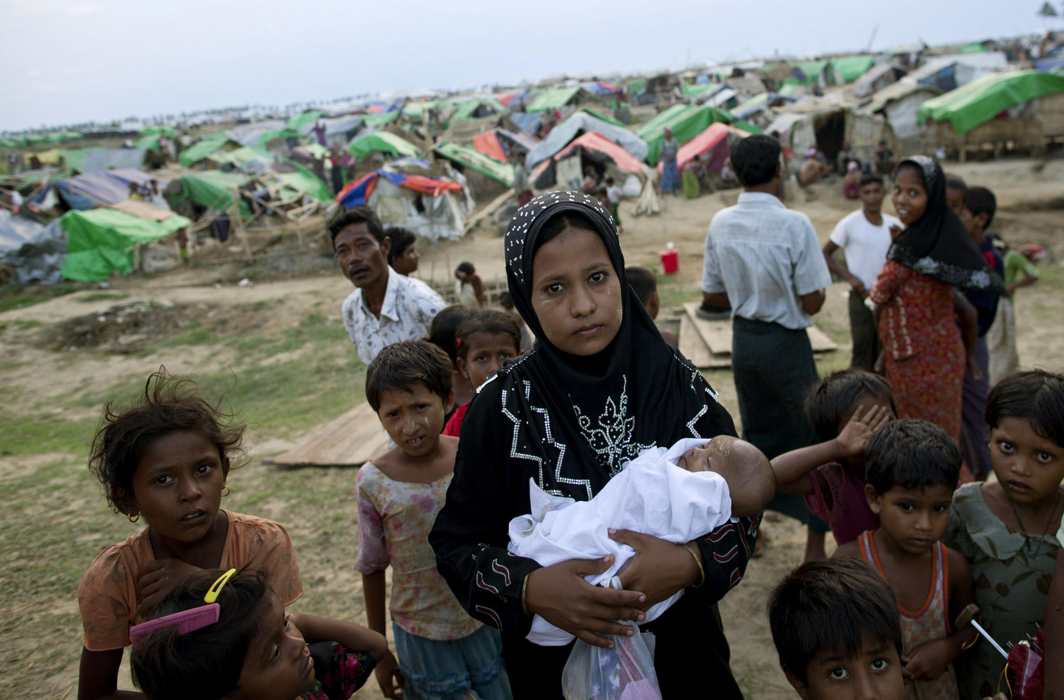
[vc_row][vc_column][vc_column_text]Over 600,000 Rohingya Muslims have fled to Bangladesh from Myanmar since the army began an ethnic cleansing drive in August; repatriation to begin in two months
Even as global leaders and human rights organisations continue to voice concerns over the safety of Rohingya Muslims in the strife-torn Rakhine State, the Myanmar government signed a repatriation deal with Bangladesh, on Thursday, under which it would allow members of the persecuted ethnic minority to return to their home country.
The deal, termed by the Bangladeshi establishment as a “primary step” towards the rehabilitation of Rohingya Muslims, will however take about two months to come into effect since both countries will first have to prepare the ground work for identifying and then verifying Rohingya refugees who have fled Myanmar’s Rakhine State since August this year.
The Rohingyas, often seen as the world’s most persecuted ethnic minority, had begun to flee the Rakhine State – a majority of them taking refuge in neighbouring Bangladesh – since August this year when Myanmar’s military began a violent and barbaric crackdown against the community. The crackdown, described by the international community and more recently by US Secretary of State, Rex Tillerson as ‘ethnic cleansing’, had begun after militant members of the Arakan Rohingya Salvation Army (ARSA) allegedly attacked an outpost of the Myanmar army.
Thursday’s repatriation deal was signed by Bangladesh Foreign Minister AH. Mahmud Ali and Myanmar State Counsellor Aung San Suu Kyi in Myanmar’s capital Naypyidaw. Suu Kyi, a Nobel Peace Prize winner, has been under a strident attack by the global community and her brethren from the Nobel laureate fraternity for allegedly turning a blind eye towards the atrocities on the Rohingyas.
According to some estimate, over 600,000 Rohingya Muslims have fled Myanmar to take refuge in neighbouring Bangladesh since August this year. The mass exodus of the people from Rakhine State has caused huge stress on the resources of a financially constrained Bangladesh which also stare at the possibility of clashes erupting on its soil if the humanitarian crisis is not addressed at a war footing.
Details on the repatriation deal were, however, not immediately available and the Bangladesh foreign minister was quoted in media reports as saying that his government would elaborate on the nuances of the memorandum of understanding “once we return to Dhaka.”
“We have to start the process. The houses there (in Rakhine State) have been torched… levelled. They need to be rebuilt… We are ready to take them (Rohingyas) back as soon as possible after Bangladesh sends the (registration) forms back to us,” Myint Kyaing, a permanent secretary at Myanmar’s Ministry of Labour, told mediapersons in Naypyidaw.
All Rohingya refugees who wish to avail benefits of the repatriation deal are required to fill the registration forms and submit them to the Bangladesh government. These forms will then be verified by the Myanmar government following which the repatriation process is expected to commence.
Prime Minister Sheikh Hasina had, prior to signing of the deal with Suu Kyi, renewed her call to Myanmar to immediately start the repatriation of Rohingya.
While Bangladesh has been insistent on repatriation of the Rohingya Muslims within a time-bound framework, it is learnt that the Myanmar government has not agreed to such conditionality yet and has also rejected the possibility of involvement of agencies affiliated with the United Nations to help in the verification process.
Myanmar and Bangladesh have, however, decided to form a joint working group at the foreign-secretary level to start the repatriation process which Aung San Suu Kyi has described as a “win-win situation for both countries” while calling for “amicable bilateral negotiations” to end the crisis.
On September 18, Under attack from the global community and her fellow Nobel laureates, Myanmar State Counsellor Aung San Suu Kyi had invited diplomats of various missions in her country to speak to them on the issue of violence in the troubled Rakhine state and the measures being taken by her government to restore peace.
Suu Kyi had then asserted: “We are concerned to hear that numbers of Muslims are fleeing across the border to Bangladesh. We want to find out why the exodus is happening.” She had, however, also sought to apparently downplay the extent of the humanitarian crisis in her country by asserting that while her administration wanted to “talk to those who have fled”, it also felt important that the world must take into account “those who have stayed”.
“More than 50 per cent of villages of Muslims are intact and are as they were before the attacks took place”, Suu Kyi had said, despite reports from the ground and by various independent human rights groups who visited Rakhine during the period suggesting otherwise.
It was during her 30-minute speech to diplomats in September that Suu Kyi had first announced that her government was “prepared to start the verification process of refugees (who moved to Bangladesh from the Rakhine) who wish to return” to Myanmar and insisted that “those who have been verified as refugees will be accepted without any problems and with full assurance of security and access to humanitarian aid.”[/vc_column_text][/vc_column][/vc_row]
Latest world news
Bigg Boss 14 contestant Rahul Vaidya struggles walking in knee deep water, compares Dubai rains with Mumbai floods
Singer and TV personality Rahul Vaidya was recently stranded in the Dubai rains.

Rahul Vaidya, who was in Dubai ahead of his show which was scheduled to take place today, left the country due to heavy rains and reached Kolkata. The artist shared on social media his encounters in the UAE city, including challenges like walking through knee-deep water. Rahul provided an update regarding the heavy rainfall in Dubai on his Instagram profile.
The Bigg Boss 14 contestant revealed that he was in Kolkata and prepared to do an evening performance. Recalling the terrifying period he went through, Vaidya said there was a lot of confusion and panic in Dubai. The situation was similar to that when heavy floods hit Mumbai in 2005.
Vaiday also posted seval other images and videos of cars that were underwater and flooded roadways. The Bigg Boss 14 contestant, who shared his ordeal, claimed that even though it had just rained for two hours, the situation was dire.
In one of the video, which went viral he can be seen struggling in walking in knee-deep water. He can be also seen holding his sneakers in one hand and with other hand he was seen managing other things.
This is the result of the two hours of rain that it had, he can be heard saying in the video. Vidya also said he dosen’t believe Dubai is accustomed to a lot of rain. Everything had stopped working, he remarked.
After taking part in the first season of the singing reality show Indian Idol, Rahul Vaidya gained widespread recognition. In addition to Bigg Boss, he took part in Khatron Ke Khiladi 11.
Meanwhile, heavy rains that triggered flooding in the UAE and Bahrain, which left 18 people dead in Oman on Sunday and Monday, have paralyzed the financial hub of the Middle East, Dubai.
A lot of incoming flights were diverted from Dubai’s international airport because of the rain. At 7:26 p.m., the busiest airport in the world for foreign visitors stopped accepting new arrivals; a gradual resumption was announced for more than two hours later.
Images of planes navigating flooded tarmacs are making the rounds on social media.
According to pictures shared on social media, the flagship malls Dubai Mall and Mall of the Emirates both experienced heavy floods, while at least one Dubai Metro station had water up to the ankles.
There were several road collapses, severe flooding in residential areas, and numerous reports of leaks from windows, doors, and roofs.
Due to the unfavourable weather, schools around the United Arab Emirates were forced to close, and as more storms are predicted, the closures are anticipated to last until Wednesday. The government of Dubai allowed its staff to work remotely till this Wednesday.
Latest world news
Dubai sky turns green during storm in UAE, video goes viral
The UAE witnessed record-breaking rainfall on Tuesday and the National Centre of Meteorology recorded 254 mm of rainfall in less than 24 hrs in the Khatm Al Shakla area in Al Ain.

1 person was killed in UAE as it witnessed heavy rainfall on Tuesday, stranding commuters, flooding roads, disrupting trains and flights and resulting in water leakage from mall ceilings. The UAE witnessed record-breaking rainfall on Tuesday and the National Centre of Meteorology recorded 254 mm of rainfall in less than 24 hrs in the Khatm Al Shakla area in Al Ain. It is being said that the rainfall was the highest documented since the start of data collection in 1949.
The heavy rainfall in UAE came days after a similar situation in neighbouring Oman, where 13 people were killed in flash floods. Many parts of Oman saw torrential rains, which caused students to be trapped in buses and swept away motorists and trapped people in their homes.
Videos from Dubai circulating on social media showed widespread waterlogging on roads in Abu Dhabi, Dubai and other important cities. This left daily commuters in cars and other vehicles struggling to get back home. Dubai metro station too was seen flooded and closed.
One such video circulating on social media shows the aerial view of the city of Dubai from the top of a building. In the video the stormy winds are seen blowing over the city of Dubai. As the storm intensifies the Dubai sky turns green and ultimately gets covered by heavy rainfall. The video has gone viral on social media with more than 1.1 million views.
Another video showed water leakage from the ceilings of shopping malls, flooding the floors and destroying goods. A video which was shot in the famous Mall of the Emirates, showed pieces of ceiling falling as the rainwater gushed inside. Videos from many outlets of the Deira City Centre mall chain showed escalators being rendered unusable. Majid Al Futtaim, the company which owns the Mall of Emirates, said that the shopping complexes have been kept open and the customers are being sent away from the flooded areas.
India News
Sri Lankan Minister Douglas Devananda says statements on reclaiming Katchatheevu island from Sri Lanka have no ground
Devananda told the media on Thursday that it is not unusual to hear such claims and counterclaims about Katchatheevu as elections are taking place in India.
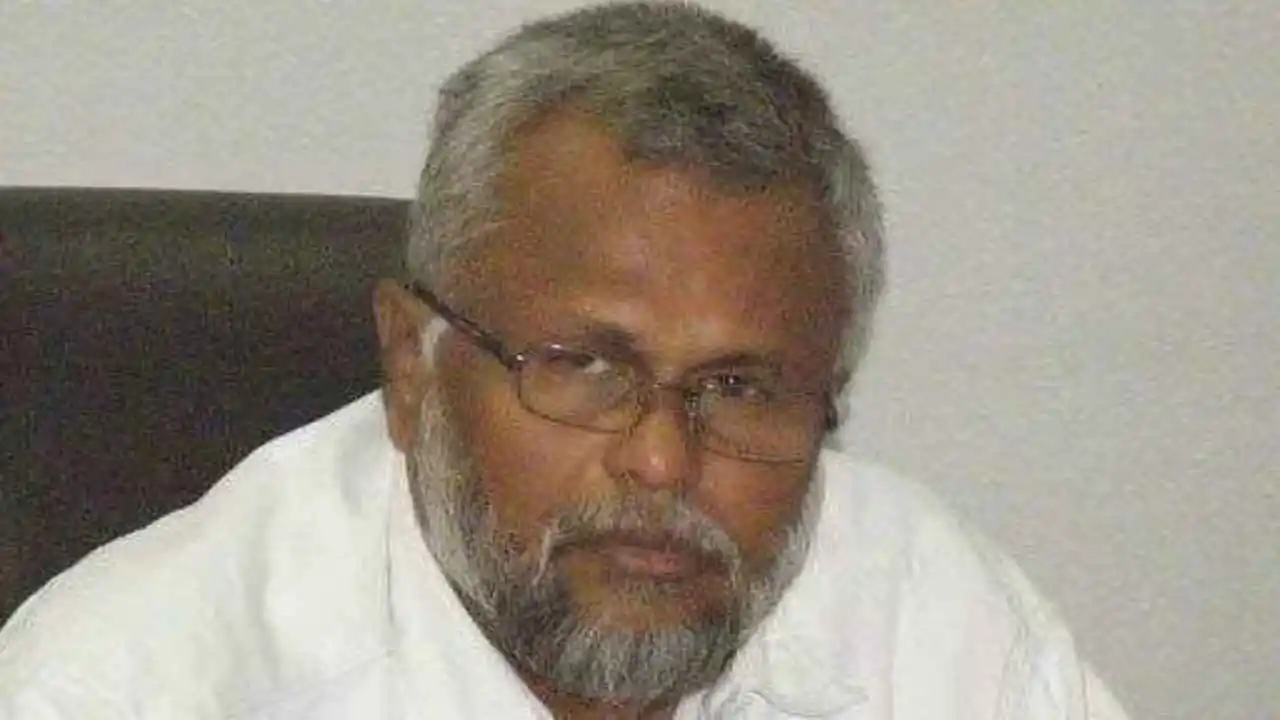
Sri Lankan Minister Douglas Devananda has said the statements from some political leaders in India on reclaiming Katchatheevu from the island nation have no ground. He told the media on Thursday that it is not unusual to hear such claims and counterclaims about the strategic island as elections are taking place in India.
The Sri Lankan Minister said he thought India is acting on its interests to secure this place to ensure Sri Lankan fishermen would not have any access to that area and that Sri Lanka should not claim any rights in that resourceful area. According to the 1974 agreement, Devananda said Indian and Sri Lankan fishermen can go fishing in the territorial waters of both countries until the pact was reviewed and amended in 1976.
The amended agreement resulted in fishermen from both countries being barred from fishing in neighboring waters. India’s ministry of External Affairs (MEA) on Thursday steered clear of the row surrounding Katchatheevu island. To a volley of questions on the Katchatheevu issue, MEA spokesperson Randhir Jaiswal reffered to External affairs Minister S Jaishankar’s recent comments on the matter.
He said he would like to talk about the issue that has been raised. He added the External Affairs minister has spoken to the press here in Delhi and also in Gujarat and has clarified all the issues. He said everyone should look into the press engagements and they would find the answers to their questions there.
The remarks from Devananda, a Sri Lankan Tamil, came days after the Narendra Modi government accused the Congress and its ally DMK in Tamil Nadu of overlooking national interests by handing over Katchatheevu island to Sri Lanka in 1974. The BJP has also been slamming the 2 parties for not ensuring the rights of the fishermen wanting to fish in waters around the island.
-
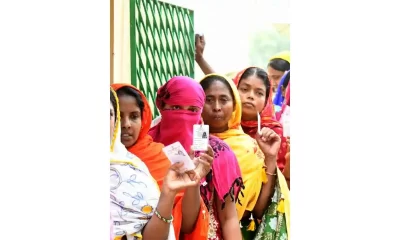
 2024 Lok Sabha Elections14 hours ago
2024 Lok Sabha Elections14 hours agoPrime Minister Narendra Modi urges citizens to vote in record numbers as voting for first phase of Lok Sabha elections begins on 102 seats across India
-

 2024 Lok Sabha Elections12 hours ago
2024 Lok Sabha Elections12 hours agoKamal Haasan, Rajinikanth, Vijay Sethupathi, Dhanush vote in Chennai
-

 2024 Lok Sabha Elections13 hours ago
2024 Lok Sabha Elections13 hours agoLok Sabha elections 2024: Google Doodle marks the start of polls with index finger voting symbol
-

 2024 Lok Sabha Elections12 hours ago
2024 Lok Sabha Elections12 hours agoLok Sabha elections 2024: TMC, BJP workers clash in West Bengal’s Cooh Behar ahead of voting
-

 2024 Lok Sabha Elections11 hours ago
2024 Lok Sabha Elections11 hours agoLok Sabha elections 2024: Newly married couple cast vote in Jammu and Kashmir’s Udhampur, video goes viral
-

 Entertainment9 hours ago
Entertainment9 hours agoDo Aur Do Pyaar social media review: Social media users say Vidya Balan, Pratik Gandhi deliver standout performances in this adorable film
-

 2024 Lok Sabha Elections11 hours ago
2024 Lok Sabha Elections11 hours agoTamil Nadu BJP chief K Annamalai says party will sweep Karnataka and emerge victorious in Telangana, accuses DMK, AIADMK of influencing voters in Coimbatore
-

 Entertainment10 hours ago
Entertainment10 hours agoYami Gautam starrer Article 370 releases on Netflix today

